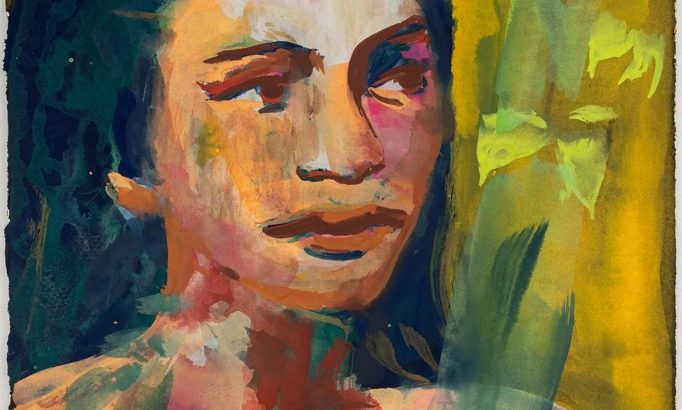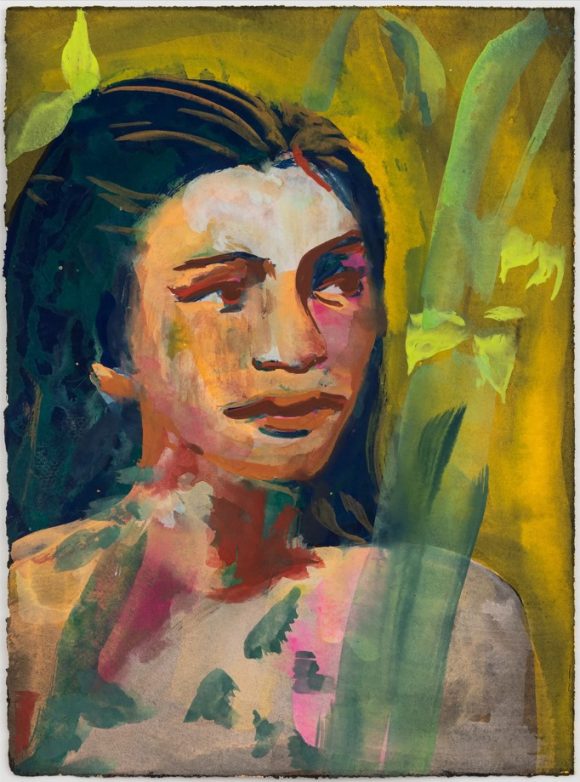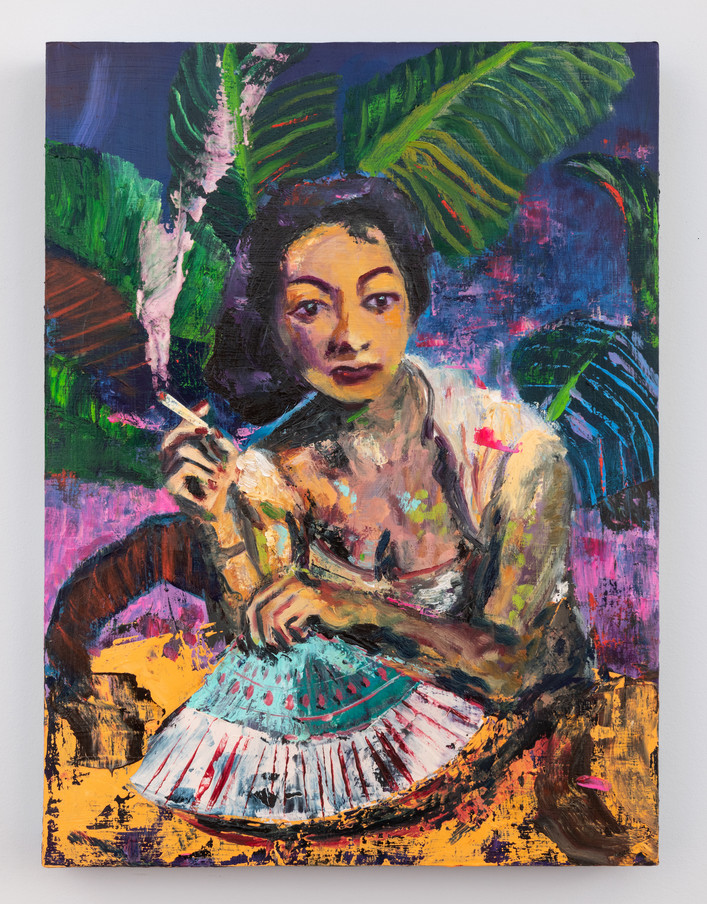
Maia Cruz Palileo: De-Orientalizing Heritage Through Art
April 9, 2024
This blog post was written by Olivia Anderson, double major in Peace Studies and French.
Maia Cruz Palileo (they/them) is a Brooklyn-based artist whose family comes from the Philippines. Their family’s migration experience influences their art and presents themes of “the permeable concept of home” and migration. They are motivated by a “longing to understand the motherland.” Palileo’s mother passed away when they were a teenager, leaving them with unanswered questions about what came before them. Missing their mother has been a motivator for learning about their mother and her history through art.

Maia Cruz Palileo, Misty Morning, gouache on paper, 2022. Purchased with funds from the Escalette Endowment.
In Misty Morning, the figure appears behind and within a vibrant green scenery, a familiar setting in many of Palileo’s works. Palileo speaks about the subjects of their work as “rebels” with a “fierce spirit.“ They purposefully portray and select their subjects in this manner as a stark comparison to the “heavily captioned US photographic archive in which a westerner claims a singular narrative about a group of people.” American anthropologists have historically portrayed Filipino people as “savages” in need of the “enlightened” Westerners in their work. This is a trope seen over and over in Oriental studies and art. Palileo takes the same subjects used by American anthropologists but instead brings the human back into the work and discards the Oriental gaze.
- Maia Cruz Palileo, Flute Song, oil on canvas, 2020.
- Maia Cruz Palileo, The Singer, oil on panel, 2022.
I found Palileo’s art particularly interesting because of how many themes parallel my Peace Studies capstone project about Algerian descendants in France. Many French-Algerians share the stories of their grandparents and parents’ experiences under French colonialism and migration to France, which have been silenced within French society and their families due to the shame and pain that they carry. Similarly, Palileo’s work is based on themes of assimilation and the memories of her Filipino ancestry. Both the subjects of my project and Palileo’s describe how they were not taught the history of their heritage in school, despite both respective countries’ colonial involvement in those countries of heritage. Algeria was a French colony for 132 years, ended by a brutal war against France that lasted eight years. Almost in a reverse manner, the U.S. involvement in the Philippines began with the Philippine-American war that lasted from 1899-1902 and ended in 1946 when the U.S. granted the Philippines independence. However, the U.S. had a significant military presence in the Philippines until 1992, when the last base closed. Recently, the U.S. and Philippine governments have agreed to increase U.S. military presence again in fear of the threat of China. This decision has received backlash from Filipino citizens who fear the re-implementation of the American imperialist project.
Misty Morning is currently on view on the 4th Floor of Beckman Hall.
Sources:
https://www.maiacruzpalileo.com/about
https://history.state.gov/milestones/1899-1913/war
https://www.npr.org/2023/02/02/1153727888/the-us-philippines-american-military-presence
https://www.youtube.com/watch?v=ZHUWGOg0kxQ
We invite you to explore all the works in the Escalette Collection by visiting our eMuseum.
Wilkinson College of Arts, Humanities, and Social Sciences is the proud home of the Phyllis and Ross Escalette Permanent Art Collection. The Escalette Collection exists to inspire critical thinking, foster interdisciplinary discovery, and strengthen bonds with the community. Beyond its role in curating art in public spaces, the Escalette is a learning laboratory that offers diverse opportunities for student and engagement and research, and involvement with the wider community. The collection is free and open to the public to view.



